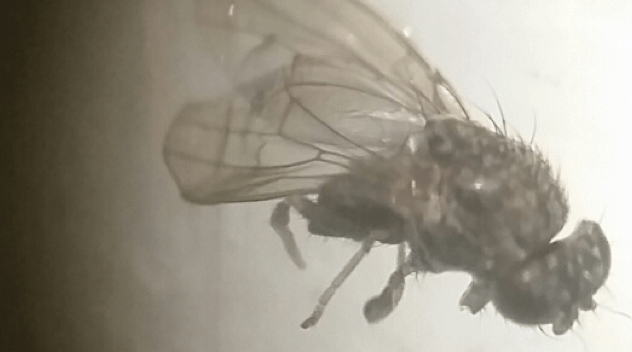By instinct they seek shelter away from the elements such as in the fall when it gets cold.
Attic flies in house in winter.
You can recognise cluster flies because they are larger than house flies and often appear to be slightly yellow or golden because of their tiny hairs.
Don t worry cluster flies do not breed indoors.
Cluster flies prefer warm areas so homeowners often find them flying around houses on sunny days in the winter and late fall months.
Unfortunately this annoyance will persist through the spring cluster flies are named for their habit of clustering in large numbers on outside walls in.
Last summer s abundant rainfall was favorable for development of cluster flies.
In the late fall and early winter the newly developed cluster flies look for places to spend the winter out of the cold and damp.
Flies are an expected nuisance in the spring and summer but some homeowners will find themselves in the midst of an infestation in cold winter months.
They breed in soil and host on earthworms during.
Thus the common name they have of attic flies.
Insecticides can be used on the outside of the house in mid september if you have a persistent problem with attic flies.
Seeking shelter from the frost and wind they come indoors and settle down for the winter.
The adult flies are attracted to the sunny side of homes in the fall looking for ways to get inside before winter.
Basically cluster flies are just inside your house because they want to stay warm.
So how can you get rid of cluster flies in the house.
Attic flies which are also known as cluster flies are insects that often migrate into homes in the fall where they hibernate for the cooler fall and winter months one of the best tips for getting rid of attic flies is to keep them from entering the house in the first place as trying to eliminate them after they are in hibernation can be difficult.
And the easiest entrance is usually through external gaps leading to your attic.
Preventing attic flies is a job for the summer and fall.
These eggs hatch throughout the winter and the little flies have nowhere to go but the home.
Entry entering living spaces by way of electrical outlets or baseboards the pests take shelter in attics and walls to hibernate awaiting the arrival of warmer spring weather.
They typically do this in the walls and attics of our houses.
Those large flies in your home in winter are probably cluster flies which overwinter in the protected areas between the inside and outside walls of your home or in the attic or basement.
The larvae develop into cocoons before hatching into adult flies.
Some species of flies such as face and cluster flies lay eggs in the cracks and crevasses of a home.
The result has been a greater than normal abundance of these large black pesky flies in houses this winter.
Cluster flies cluster.
Attic flies are especially abundant this spring.
Overwintering insects generally stay in secluded areas until the warming and lengthening days of spring pull them from hiding.

